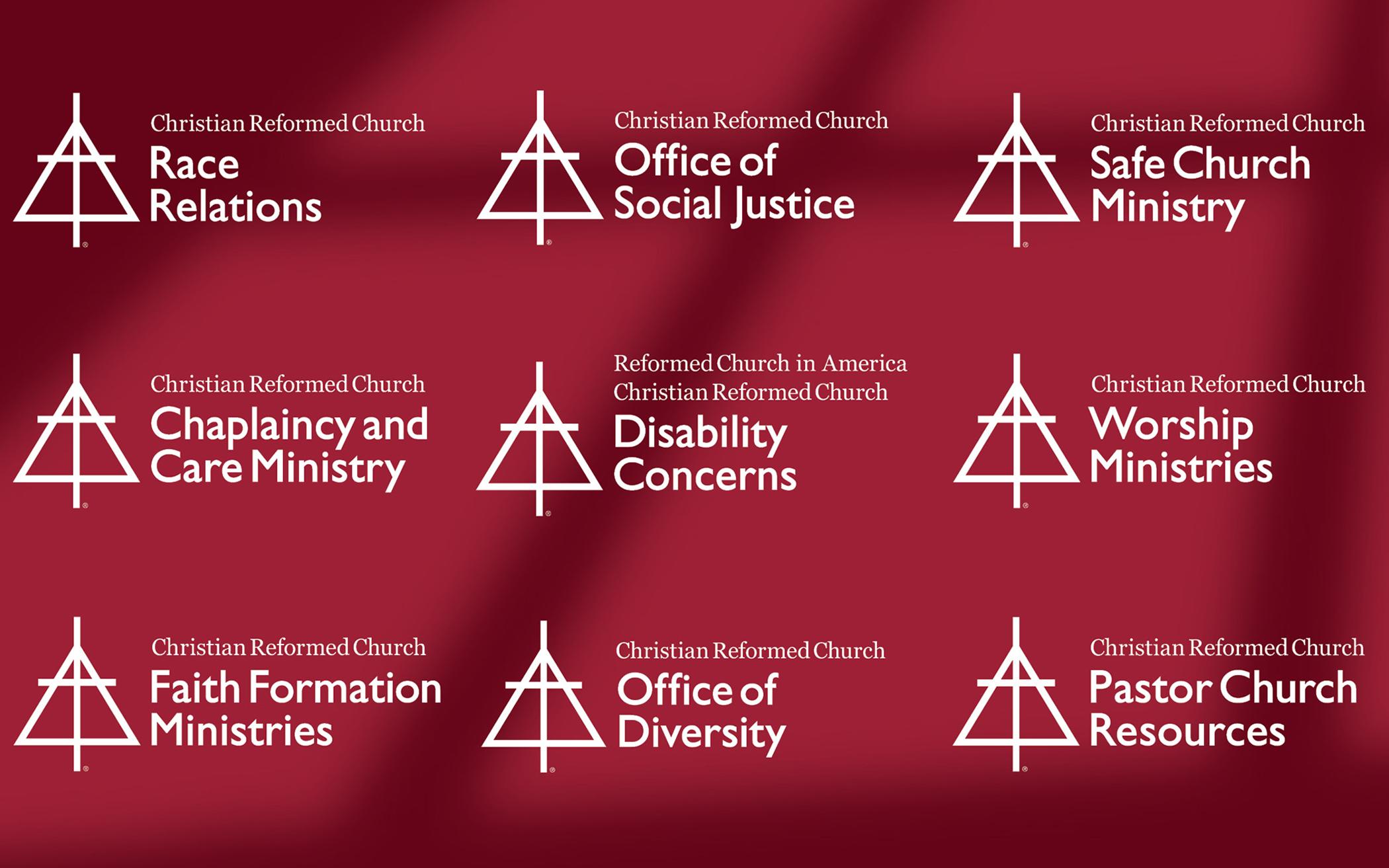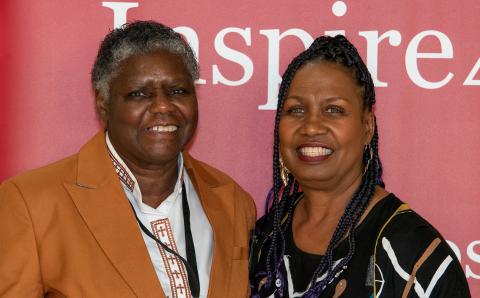—Congregational Ministry directors
In an email to the members of the Christian Reformed Church’s Council of Delegates Sept. 6, and later announced on crcna.org, current directors of congregational ministries in the denomination outlined an in-progress reorganization of ministry staff. The changes are “focused on better serving local congregations, increasing efficiency, and reducing overall costs” and eliminate nine director-level positions by shifting former directors of individual ministries to different roles and by not filling the positions of recently retired or retiring directors. “A few part-time positions have been eliminated, and those staff have been thanked for their years of service,” the announcement said. Other staff across nine ministry areas—race relations, diversity, chaplaincy, disability concerns, faith formation, pastor church resources, safe church, social justice, and worship—have been assigned to new cross-ministry teams.
Lis Van Harten, director for congregational ministries in the U.S. and who had been serving as director for Pastor Church Resources, said, “The time had come to carefully examine how CRCNA ministries—especially those designed to serve and equip local congregations—were organized,” in light of the implementation of the Structure and Leadership Taskforce report last spring, the new financial realities of churches pledging ministry shares rather than remitting a specified amount, and shifts in work after the pandemic adaptations. She first introduced the intention of the reorganization, though not the details, to the Council of Delegates at its May 2022 meeting. The Council works on behalf of synod, the broadest assembly of the denomination, in between meetings of synod. It includes one delegate from each of 49 classes (regional groups of churches) and up to 10 at-large members.
Van Harten and Lesli van Milligen, in Canada, are co-leading the reorganized collaborative ministry. Van Harten intends to retire next spring and a transition plan will be proposed to the COD in October.
Five Cross-Ministry Teams
Ministry staff will now work on one of five task-oriented teams. “They will focus on operations, resourcing, content, consultation, or regional engagement for all of the ministry areas,” the announcement said.
Many of these ministry areas are supported by volunteer advisory committees made up of CRC members, such as the Office of Social Justice Commitee for Guidance and Support, or are partnered with volunteers from the classes, such as classical safe church teams or regional disability advocates. “Advisory teams and classical volunteers will continue as before and will receive ongoing support, resourcing, and communication from our team,” the announcement said. “The insight from advisory teams made up of people in local churches will continue to be invaluable to us as we move forward.”
Amanda Benckhuysen, formerly director of the CRC’s Safe Church ministry, will continue working in that area, “primarily as a consultant in helping churches respond well to situations of abuse,” she said. She’s also leading the Congregational Ministry’s consultation team, whose members “do the work of coming alongside churches to provide support and counsel for the various challenges and opportunities churches face,” Benckhuysen said. “Along with safe church, the consultation team includes those who have experience supporting pastors and councils, chaplains, youth directors, children's ministry volunteers and other church staff as well as those whose primary ministry is to support women in leadership and ethnic diversity.”
Benckhuysen said she sees the reorganization as a boost to smaller ministries like Safe Church, which on its own had the equivalent of two full-time staff. “From the outside looking in, this will feel hard to a lot of people who worked hard and long to help establish these ministries and offices. It may look like a dismantling, but from the inside, looking out, it doesn't feel like that. It feels hopeful,” she said. She said she doesn’t expect to lose the emphasis from each of the specific ministries, but instead, “through greater collaboration, safe church concerns and best practices will be more fully integrated into every aspect of congregational ministry—from worship to faith formation, mercy and justice, mission, and chaplaincy and care. This means that eventually, churches won't have to go to multiple places to hunt down the resources and help that they need. Instead, all the resources we offer will capture collectively something of the heart and soul of what each of our ministries now focus on individually.”
‘One Congregation-focused Ministry’
Van Harten and van Milligen said, “Through this reorganization, we are placing the church/ministry leader's particular context as the starting point for discerning how we can best serve the congregation, rather than starting with the office or ministry program as the impetus for our engagement.
“The intent will be to operate as one congregation-focused ministry rather than nine individual organizations,” the announcement said.
The congregational ministry leaders asked “for patience as we make this transition,” anticipating that “it will take the better part of the coming year to realize.”
An estimated savings as a result of the reorganization was not available. Van Harten said the primary driving factor of the reorganization was not budget but “serving congregations in the most effective way.” She said, “It's very difficult to put a number on the savings at this point in time,” noting they expect to realize savings over time as the ministry providers collaborate and they begin “to see how we can eliminate redundancies, create more efficient processes, etc.
“This is a work in progress that we're taking one step at a time. We're committed to doing this hard work well so that we can focus on the church first—serving them in the best way we can,” Van Harten said.
In an earlier in-house announcement to denominational staff (June 8) Van Harten and then congregational ministries leader in Canada, Peter Elgersma, described some of the reorganization, noting that affected staff were informed June 1 about their place in the new organization, including an update of more than 40 position descriptions.
Canadian-specific ministries such as the Center for Public Dialogue, the Canadian Indigenous Ministry Committee and the Canadian Advisory Committee on Antiracism are not impacted by the reorganization.
About the Author
Alissa Vernon is the news editor for The Banner.








